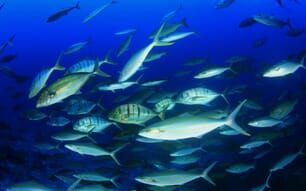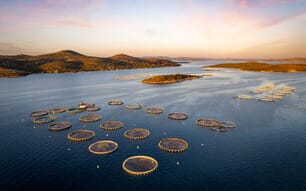“The MSC Board recognises the increasing importance placed on social issues when considering sustainability,” said Werner Kiene, Chairman of the MSC’s Board.
“As a result the MSC Board has resolved to enhance the MSC sustainability certification scheme for wild fisheries by introducing a risk based approach that assures stakeholders that labour practices throughout the MSC certified supply chain, from ocean to consumer, meet internationally accepted norms.”
The MSC’s executive team will consult a wide range of stakeholders in developing proposals on how this can be achieved. Proposals will be open to solutions that might be provided by other standard setting organisations and third parties.
This decision builds on the previous commitment made by the MSC Board in 2014 to prohibit organisations convicted of forced labour violations from achieving MSC certification.
“There is deep and widespread concern about labour abuses within the global fishing industry and supply chain. Many organisations are grappling with how best to provide the market with cost effective and viable tools to assure their products and supply chains are operating at internationally accepted norms and free from these shocking and unacceptable practices,” said Rupert Howes, Chief Executive of the MSC.
“Whilst several social standards have started to provide a solution for on-shore supply chain verification, there are numerous challenges to providing similar assurances for at-sea vessels. However, some initiatives are already underway. The MSC intends to work with, and learn from, these other initiatives and our fishery and market partners, to understand their needs and expectations. Our aim is to develop a risk based approach to requiring greater audit scrutiny where there is an identified need. It will not be easy. We encourage our partners to share their experiences with us in order to ensure that the new requirements are both effective and proportionate,” continued Mr Howes.
Phased introduction with three opportunities for stakeholder input
The MSC anticipates introducing any agreed new risk based requirements in phases. The initial phase is expected to require a declaration by MSC certified fisheries that they are free from unacceptable labour practices and are able to supply evidence to support this claim. The MSC Board has asked for this requirement to be implemented by the end of 2018, following detailed consultation. The MSC will also consult on a set of auditable social requirements or a declaration that will be implemented in the MSC Chain of Custody Standard in 2018. This may include recognition of solutions offered by other standard setting organisations.
The next phase will be to consult on a set of auditable social requirements for labour practices in fisheries, including options to recognise solutions offered by other standard setting organisations, which will be implemented in 2020 when planned updates to the MSC Fisheries Standard are released.
Details of all stakeholder consultations can be found on the MSC's program improvements website.
Anyone wishing to register an interest in these consultations should email standards@msc.org.




